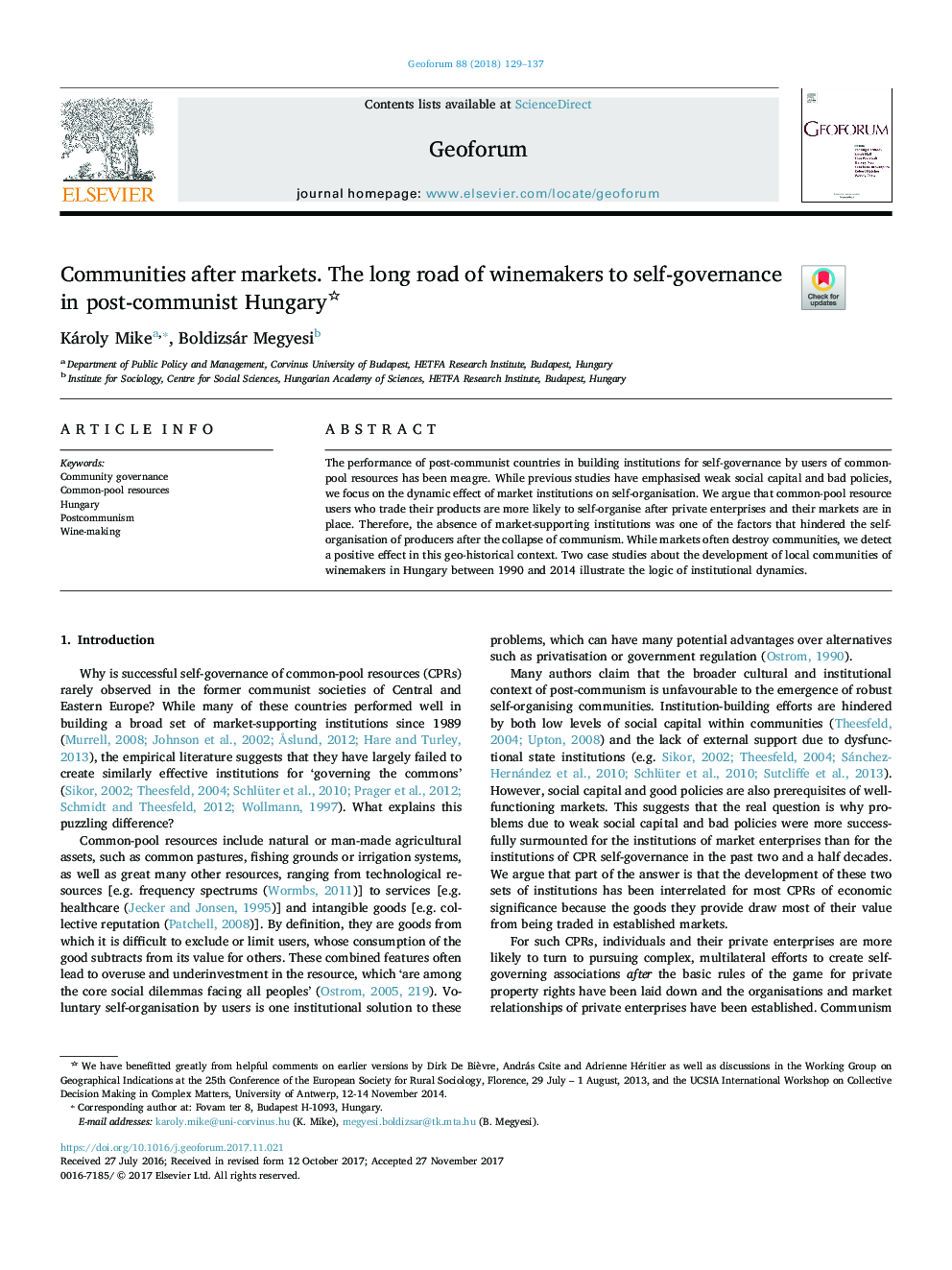| Article ID | Journal | Published Year | Pages | File Type |
|---|---|---|---|---|
| 7353924 | Geoforum | 2018 | 9 Pages |
Abstract
The performance of post-communist countries in building institutions for self-governance by users of common-pool resources has been meagre. While previous studies have emphasised weak social capital and bad policies, we focus on the dynamic effect of market institutions on self-organisation. We argue that common-pool resource users who trade their products are more likely to self-organise after private enterprises and their markets are in place. Therefore, the absence of market-supporting institutions was one of the factors that hindered the self-organisation of producers after the collapse of communism. While markets often destroy communities, we detect a positive effect in this geo-historical context. Two case studies about the development of local communities of winemakers in Hungary between 1990 and 2014 illustrate the logic of institutional dynamics.
Related Topics
Social Sciences and Humanities
Economics, Econometrics and Finance
Economics and Econometrics
Authors
Károly Mike, Boldizsár Megyesi,
